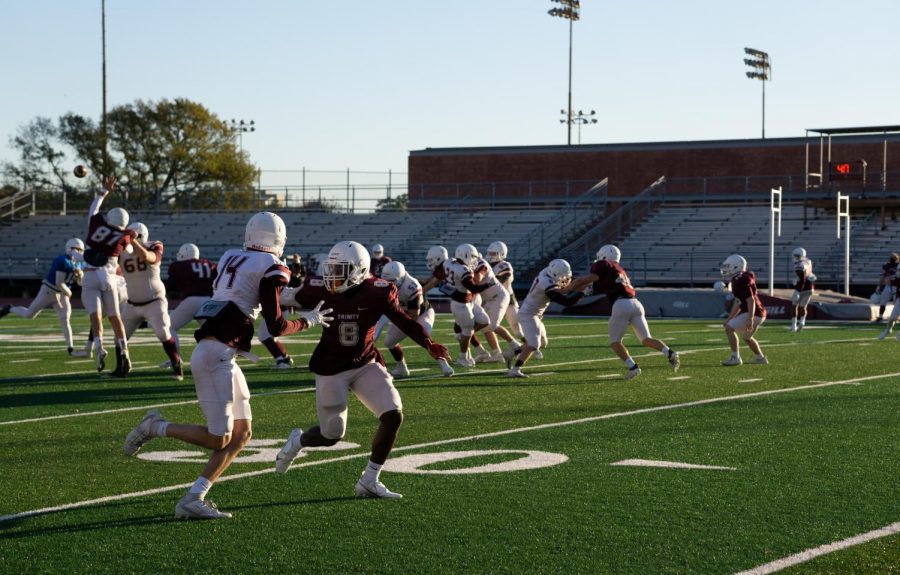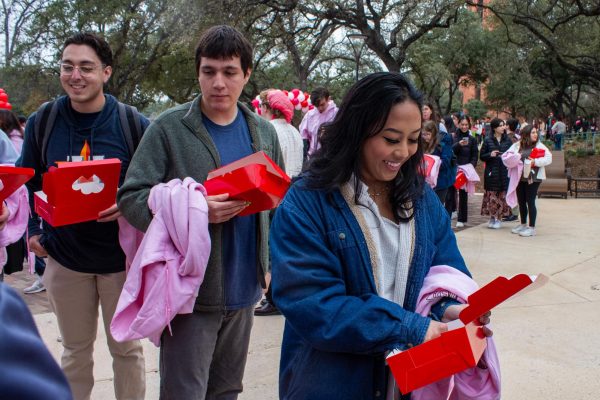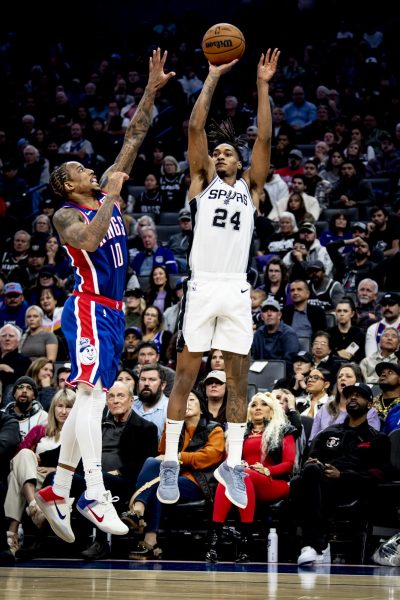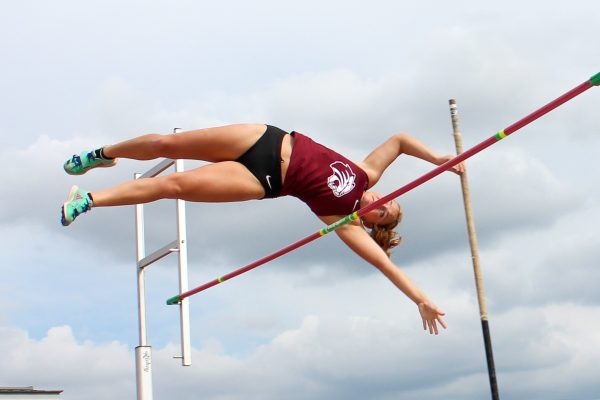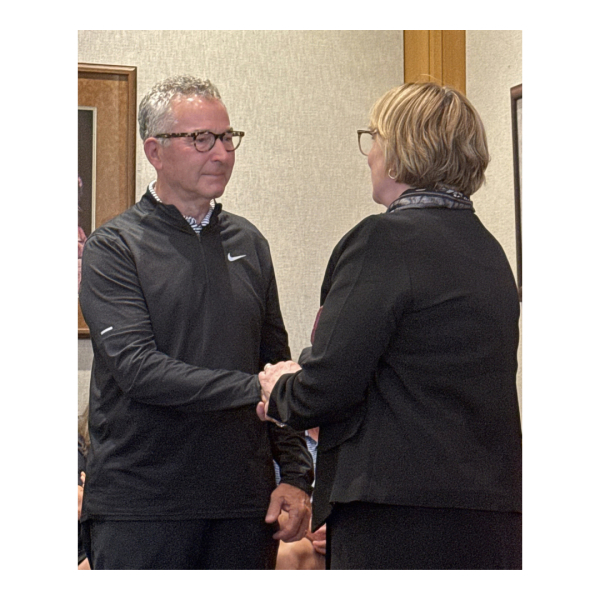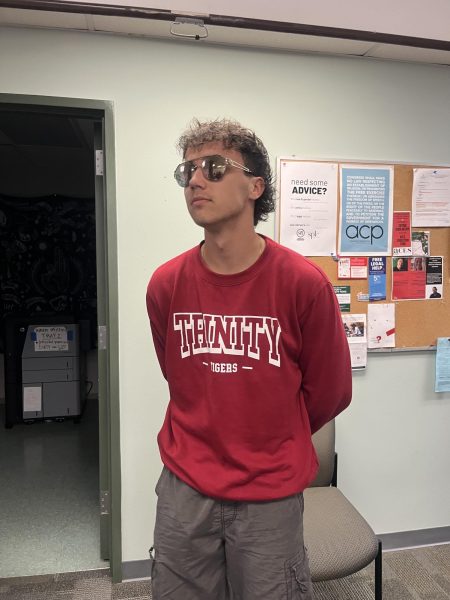Classes shift online while sports receive green light
Students, athletes react to President Anderson’s announcement
The football team practices on the field in the fall. Sports will return this spring while classes remain virtual until at least Feb. 8.
On Thursday Jan. 14, Trinity surprised many students by announcing that all classes will be virtual from Jan. 25 until at least Feb. 8 due to the increased spread of COVID-19 and hospitalization rates in Bexar County. However, student-athletes will be allowed to continue with highly supervised activities throughout the period of virtual learning. Both athletes and non-athletes had mixed reactions to the surprising news.
Nadia Kern, a sophomore volleyball player, already faced a full slate of virtual classes herself, but she didn’t expect all classes across campus to shift online. Despite the shock, Kern claimed that athletics continuing is critical to giving teams any chance of completing a season.
“Athletics have to continue because two weeks off and then jumping straight into training can be detrimental to the team and individuals as far as injury and two weeks fewer of preparation taken from the season,” Kern said. “Some teams have been on campus for a few days [or] weeks already, so interrupting their early start would defeat the whole purpose of them going early in the first place.”
According to Harris Good, a junior football player, Trinity’s teams earned the right to play this spring by following the University’s strict COVID-19 protocols in the fall.
“All the sports programs worked hard last semester to follow the guidelines and control the virus, and I think as long as the virus doesn’t put our athletes and students in danger, we should be fine,” Good said. “I know football worked real hard last semester to make sure we could play, and we had the lowest of any sports team with six cases, and if we can continue to be successful with that, then I don’t see a problem with sports continuing.”
Kern echoed a similar point of view, saying that the volleyball team has been doing a good job following all of the new safety guidelines.
“We do our part by religiously wearing masks, washing hands, checking temperatures and staying six feet apart during weights and practice. I do not doubt that our safety is in mind as well as the desire to succeed as student athletes,” Kern said. “I am sure if cases rise or people don’t cooperate, Trinity will not hesitate to make the right call and cancel athletics if need be.”
Daily health screenings and temperature checks are some of the precautions student-athletes must take before attending practice or games. Additionally, throughout the fall semester, Phase One of the “Return to Sport Program” required teams to be broken into smaller pods of no more than eight players. These pods often included student-athletes that already lived together off-campus.
“A lot of people who are on sports teams also room together, so I think that if a ‘break out’ were to happen it would be easier to contain because it will be concentrated in a certain population,” said senior track athlete Seve Rodriguez. “I also think that it is good for those student-athletes to be able to maintain their practice because it will help them maintain their mental health.”
While most student-athletes are seemingly eager to play games against other schools for the first time since March of 2020, some non-athletes expressed displeasure with the exceptions sports teams are receiving to the partial closure of campus.
“I’m frustrated that I can’t go to class for two weeks but sports are allowed to continue during that time,” said junior Kelli Jackson. “ I guess it makes sense since athletes will be competing this semester, but it’s just frustrating in general that it’s very likely my entire semester will be completely virtual again without a decrease in tuition.”
Andre Gebhardt, a first-year football player, sympathised with those who feel sports and student-athletes are being treated differently than other academic areas and students.
“It seems like we’re picking and choosing what’s worth the risk of potential exposure when all aspects of college are equally important to the students,” Gebhardt said. “I think if the professors are willing to hold in-person classes, then the students should be allowed to choose whether or not they feel safe to attend those classes. At the end of the day, it should be our choice because we’re the ones being affected.”
Basketball, softball, cross country, football and tennis all will have competed in games or meets by Feb. 8 — the intended date for a resumption to some in-person classes — rolls around. There’s no telling whether that date will in fact coincide with a wider reopening for campus, but students like junior Victoria Bell hope two more weeks of online classes help keep more people safe.
“As a non-athlete, I am more than okay with staying off campus for the two weeks, especially with the uncertainty of both the new [virus] strain that’s been appearing and the vaccine still not accessible to all,” Bell said. “While I understand that athletes need to prepare for their long-awaited seasons that were postponed last semester, I hope they also take the proper precautions to ensure the safety for all of us.”

